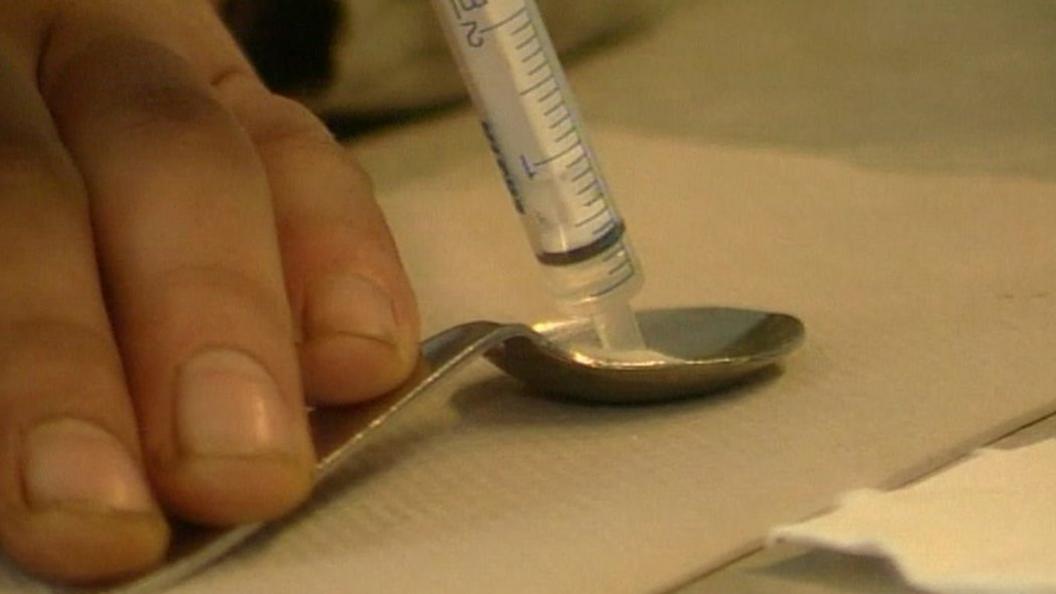Self-injection rooms plan for Glasgow drug addicts given green light
- Published
- comments

Discarded needles are one of the problems associated with drug use on the streets, according to ADP
Controversial plans to allow drug users to inject safely under supervision in Glasgow have been approved.
Members of the health board, city council and police agreed the proposals in principle but called for more details on the cost, where the clinic would be, and how it would operate.
The plan would see a facility made available for addicts to consume their own drugs.
In some cases users would be provided with medical-grade heroin.
The move aims to address the problems caused by an estimated 500 or so users who inject on Glasgow's streets.
Such a facility would be the first of its kind in the UK.
The proposals were being considered by the Glasgow City Integration Joint Board.
It has approved the development of a full business case for a pilot safer drug consumption facility and heroin assisted treatment.
It said any potential service must offer additional "wrap around" services on the same premises such as health care, counselling, and housing and welfare advice.
The group also advised that a safer injecting facility should also provide the means for the supervised inhalation of drugs.
The case for opening an injecting facility for drug users in the city was examined by the Glasgow City Alcohol and Drug Partnership (ADP) - a multi-agency group tasked by the Scottish government with tackling alcohol and drug issues.
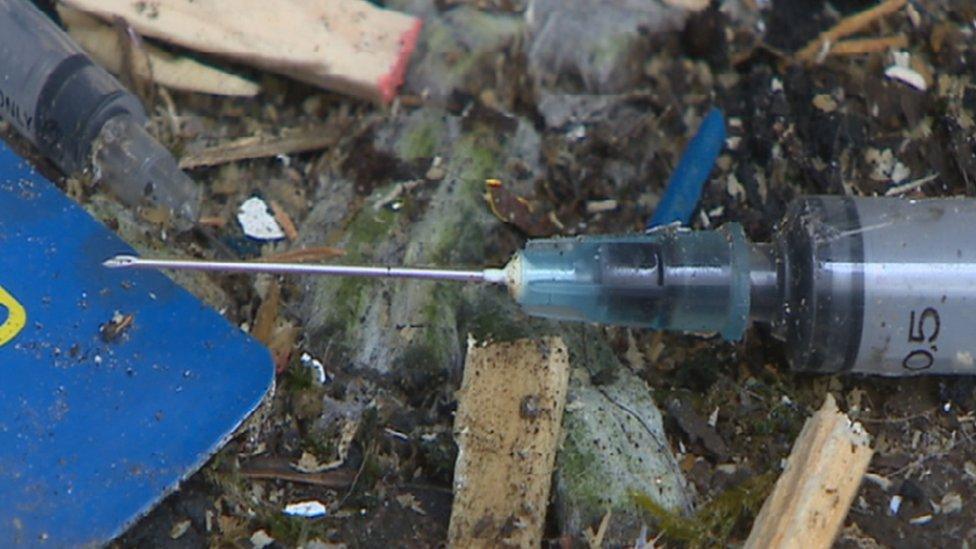
It is estimated that there are about 500 vulnerable drug users in Glasgow city centre
Susanne Millar, chairwoman of the ADP, said: "Today's approval by the Glasgow City IJB enables us to build a robust business case which will support this service.
"We believe it will improve the health of the target population as well as benefit local communities and businesses that are currently adversely affected by public injecting.
"People injecting drugs in public spaces are experiencing high levels of harm and are impacting on the wider community. We need to make our communities safer for all people living in, and visiting the city, including those who publicly inject."
Similar schemes operate in 10 other countries, including Australia, Germany, France, Holland and Switzerland.
It would mean extending existing opioid substitution therapy services to include heroin-assisted treatment and developing a peer support network for harm reduction.
ADP argues that those who inject on the streets are responsible for the majority of discarded needles which pose a health risk and contribute to public order problems.
It also says street users experience problems such as homelessness, mental health issues and poverty, and are at heightened risk of blood-borne viruses, overdose and drug-related death, as well as other injecting-related complications.
The Scottish Drugs Forum (SDF), a drugs policy and information organisation, has estimated there about 90 similar injecting facilities operating around the world, most of them in Europe.
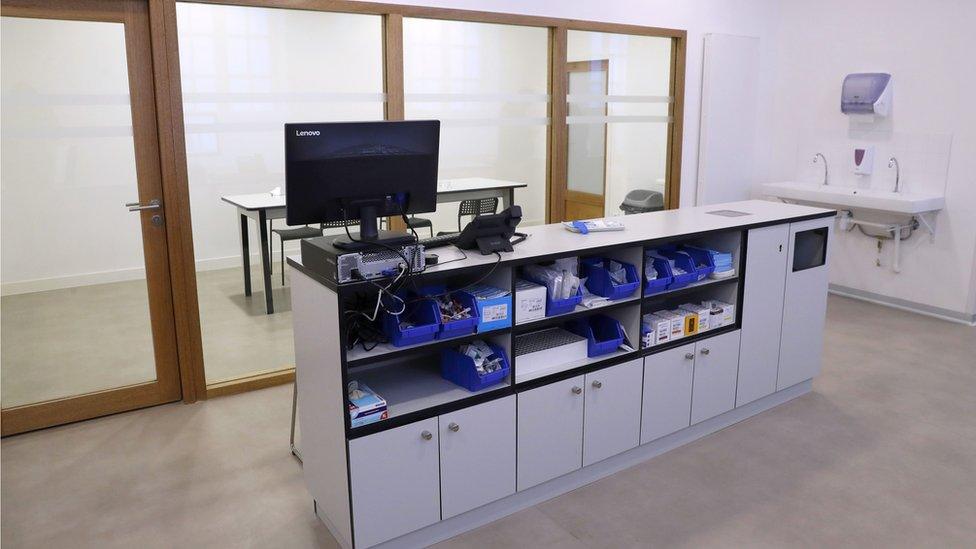
A Paris hospital recently started housing a drug room where addicts can inject under medical supervision.
Recently a Paris hospital started housing France's first "shooting gallery" - a safe place where drug addicts can inject under medical supervision.
The drug room was opened by the Paris mayor and health minister near the Gare du Nord, a busy station where drug crime is common.
In 2014, proposals were put forward for drug-use rooms in Brighton. The city's Independent Drugs Commission decided the time was not right for a pilot project but said such facilities could still open in the future.
The SDF said the rooms would provide a sterile environment where people could use drugs safely.
The forum's director David Liddell told BBC Radio's Good Morning Scotland programme there was a "desperate need" for them, particularly in Glasgow where there is an HIV outbreak among drugs users.
"I know it's been highlighted as controversial, but when you see that these have been running in many countries in Europe for a long time - Holland for example now has 31 drug consumption rooms and Germany has 24," he said.
"These are in addition to the existing provision. The key point is we have people who are mostly long-term users - people have been using for more than 20 years or more. Abstinence recovery is not on their immediate horizon.
"The most immediate thing for these individuals is the need to keep them alive so they can recover in the future."
'Real danger'
But Prof Neil McKeganey, founder of the Centre of Drug Misuse Research, said Mr Liddell was "quite wrong" to imply the rooms were not controversial.
"For anyone who's not an advocate of drugs de-criminalisation they are controversial and they will be seen as such," he told the BBC.
"Some years ago, we surveyed over 1,000 drug addicts in Scotland and we asked them what they wanted to get from treatment.
"Less than 5% said they wanted to help to inject more safely and the overwhelming majority said they wanted help to become drugs free. These facilities have a role to play but there is a real danger here we are moving steadily away from services to get addicts off drugs."
Dr Emilia Crighton, director of public health at NHS Greater Glasgow and Clyde and vice-chairwoman of the ADP, said the decision to move ahead with developing a business case for the facility "marks real progress".
She added: "We are now one step closer to catching up with other countries in the way we tackle this problem.
"This public injecting group has high rates of hospital admissions, incarceration and homelessness. While conventional treatment and services are effective for the majority of people, we believe this facility will make a major impact in reducing health risks and the resulting costs for this group.
"Our ultimate goal is for drug users to recover from their addiction and remain drug free.
"However, until someone is ready to seek and receive help to stop using drugs it is important to keep them as safe as possible while do they continue to use drugs."

How many discarded syringes have been found where you live?
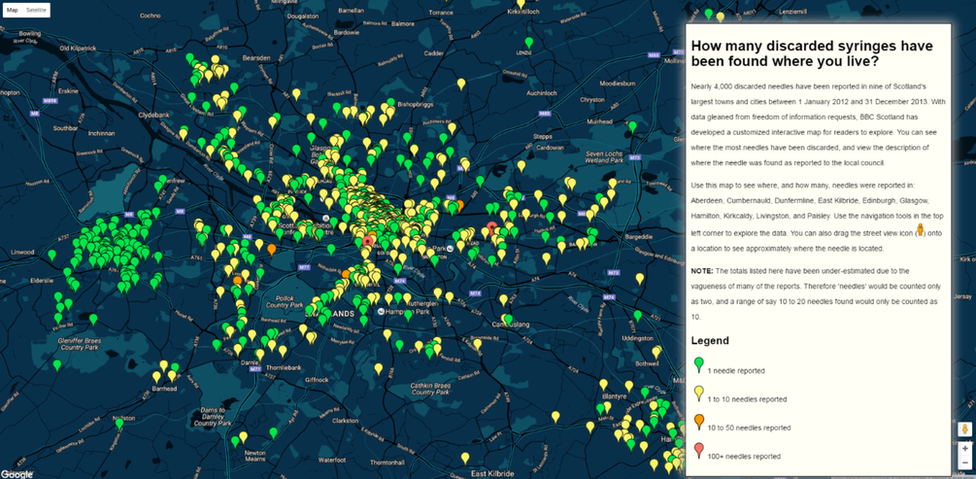
More than 3,900 discarded needles were reported in nine of Scotland's largest towns and cities over two years.
The figure was revealed by a series of freedom of information requests to the local authorities covering Aberdeen, Cumbernauld, East Kilbride, Dundee, Edinburgh, Glasgow, Hamilton, Kirkcaldy, Livingston, and Paisley.
You can see where the estimated 3,909 discarded needles were reported, as well as a description of where they were found, using the INTERACTIVE MAP developed by BBC Scotland, external.
- Published31 October 2016
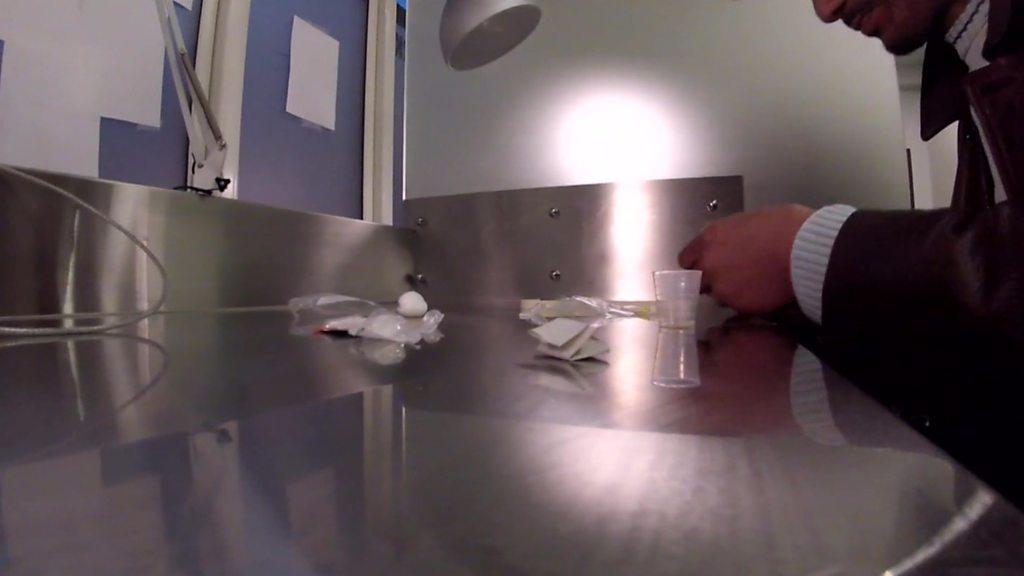
- Published11 October 2016
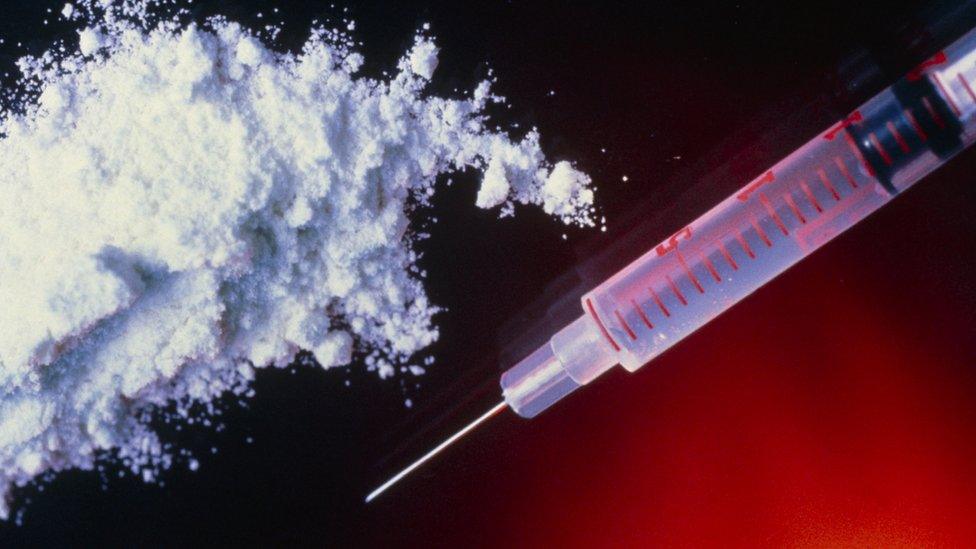
- Published29 June 2016
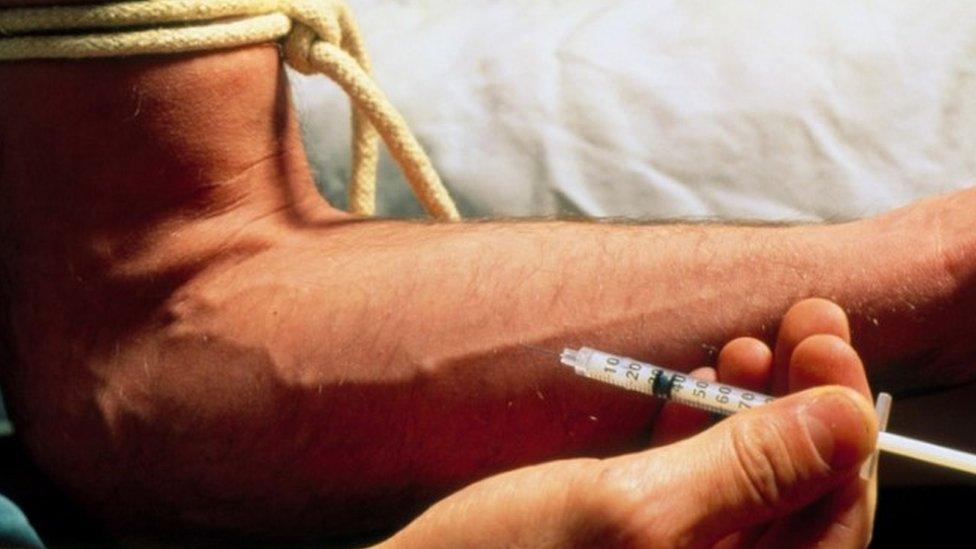
- Published13 May 2014
